Indefatigable
Anatoly Karpov’s illustrious career was marked by two major rivalries, as he played multiple, hard-fought World Championship matches against Viktor Korchnoi and Garry Kasparov. While the 12th world champion defeated Korchnoi twice in the fight for the title (in 1978 and 1981), he was defeated by Kasparov four times (in 1985, 1986, 1987 and 1990) in very close matches — the 1984 match was abandoned in controversial circumstances with Karpov leading 5 wins to 3.
Coincidentally, both his rivals are known for opposing Soviet and Russian administration and policies, but, on the other hand, they took very different approaches regarding their late careers — while Kasparov retired from competitive chess at 41, Korchnoi continued playing past his 80th birthday, sporadically getting impressive wins against much younger stars at a very advanced age.
Karpov is following Korchnoi’s footsteps in this regard. At 69, he has agreed to participate at the 2021 TePe Sigeman & Co tournament, a classical event with a time control of 100 minutes for 40 moves, 50 minutes for the next 20 moves, 15 minutes for the rest of the game and an increment of 30 seconds per move. A game might easily last over five hours!
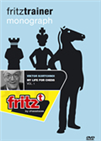 Victor Kortchnoi, two-times contender for the world championship, is a piece of living chess history. He is known as one of the greatest fighters in the history of chess. On this DVD he speaks about his life and shows his game.
Victor Kortchnoi, two-times contender for the world championship, is a piece of living chess history. He is known as one of the greatest fighters in the history of chess. On this DVD he speaks about his life and shows his game.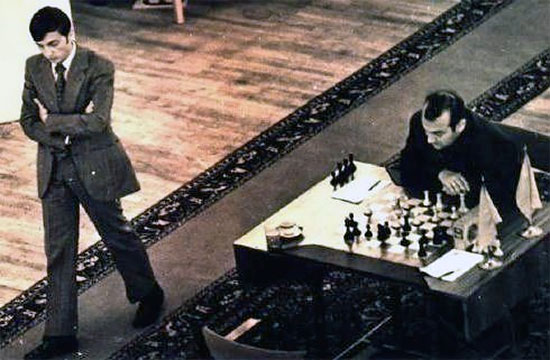
Candidates Final 1974 — Karpov beat Korchnoi 12½:11½
Not only that. The Russian legend will be facing a tough field as well. The 8-player lineup includes two 2700+ rated participants and a number of talented, ambitious rising stars:
- Le Quang Liem, Vietnam (2709)
- Jorden van Foreest, Netherlands (2701)
- David Navara, Czech Republic (2697)
- Nils Grandelius, Sweden (2670)
- Alexei Shirov, Spain (2662)
- Nihal Sarin, India (2620)
- Anatoly Karpov, Russia (2617)
- Harika Dronavalli, India (2515)
Note that the ever-fighting Shirov is also in the lineup. Nihal Sarin, at 16, will be the youngest in the field — Karpov was 53 when the talented Indian grandmaster was born!
In an interview with David Llada from 2018, Karpov talked about his first chess trip outside the Soviet orbit — to Sweden:
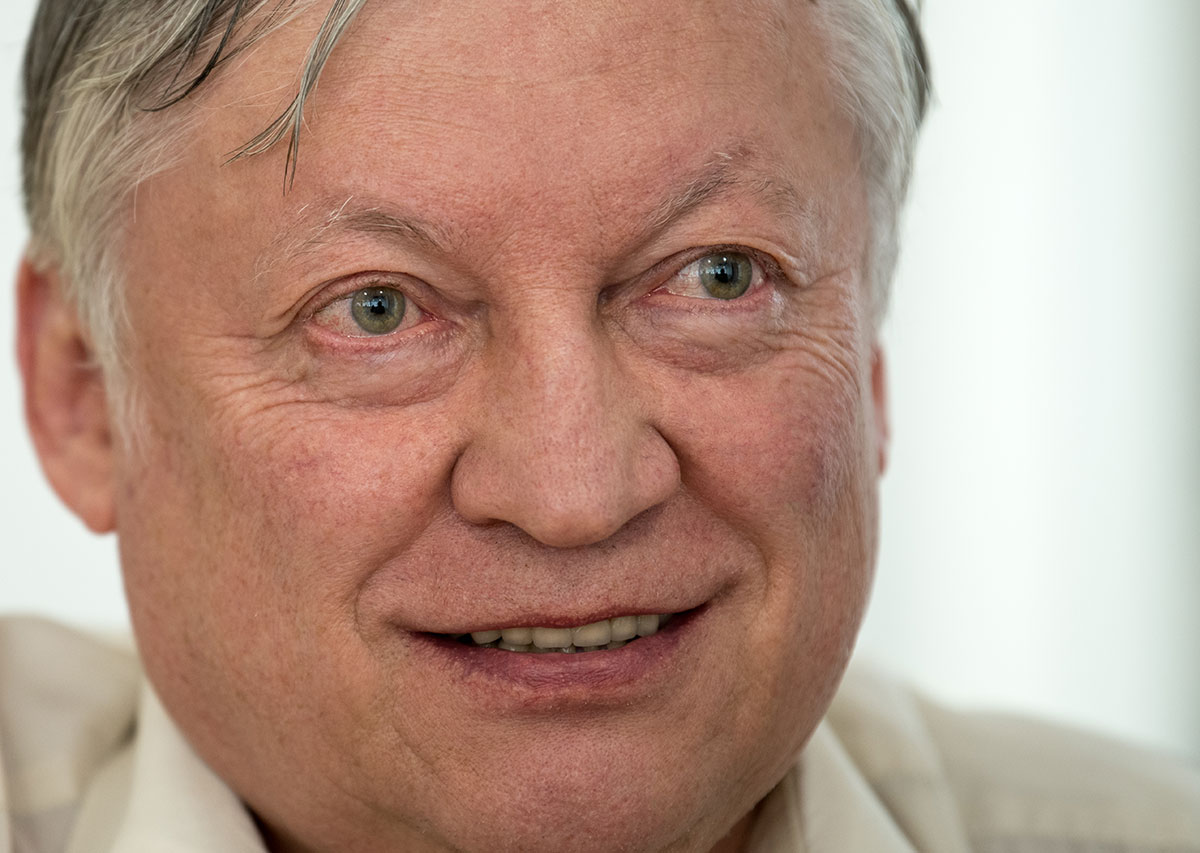 DL: Please, tell me more about your first chess trips. Your first travel abroad was to Trinec, but your first trip somewhere outside the Soviet orbit was to Sweden, right?
DL: Please, tell me more about your first chess trips. Your first travel abroad was to Trinec, but your first trip somewhere outside the Soviet orbit was to Sweden, right?
AK: Yes, apart from my trip to Czechoslovakia, Stockholm was the first foreign city I visited, and there is where I first met Ulf Andersson, for instance. There was this nice traditional tournament, in which the Soviet Union Juniors would play a match against junior players from the Scandinavian countries: Finland, Sweden, Norway, Denmark and Iceland. We won very easily in 1967, but the next year, in Tallin (Estonia) it was much more tough. I was not in good form and played very badly.
DL: Which country made a bigger impression on the young Karpov?
AK: Well, Sweden was indeed a very interesting experience, and so was the Netherlands. I went to Groningen in 1967, that’s where I first met Jan Timman, and also Max Euwe, who at that moment he was running for FIDE President.
[Photo: David Llada / TePe Sigeman Tournament website]
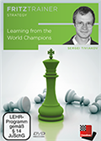 With famous classical examples from the works of the giants, the author talks in detail about principles of chess and methods of play that we can use during every stage of the game.
With famous classical examples from the works of the giants, the author talks in detail about principles of chess and methods of play that we can use during every stage of the game.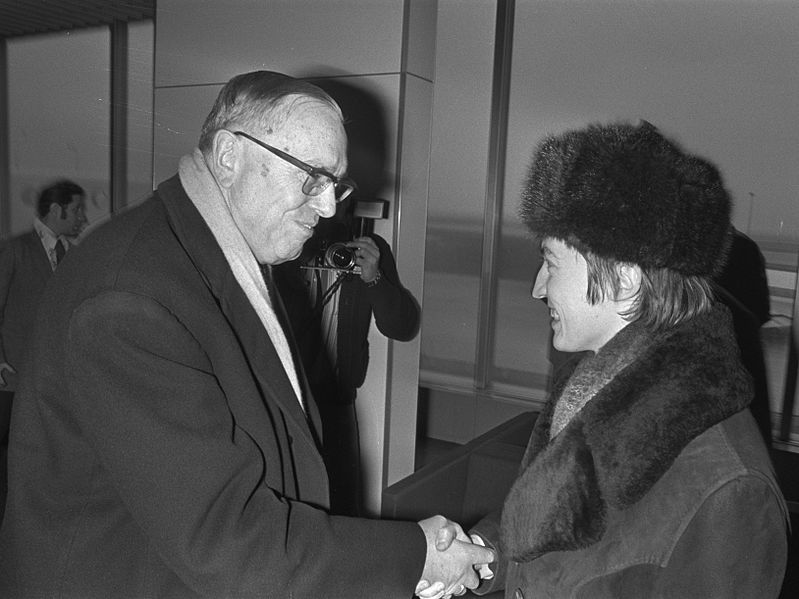
Max Euwe greets Karpov in 1976 | Photo: Rob Bogaerts / Anefo
It was also in Stockholm where Karpov won the 1969 World Junior Championship with an astounding 10/11 score, conceding draws only to András Adorján and Julio Kaplan.
Karpov’s games - 1969 World Junior Championship
It will certainly be interesting to see the highly-competitive Karpov facing such a strong field. Three of the rounds in Malmö will be played concurrently with the Candidates Tournament (April 24, 26 and 27) — luckily, we will not suffer from top-chess withdrawal symptoms once we find out who will be Carlsen’s next challenger as the chess action will continue in Sweden!
On this DVD a team of experts looks closely at the secrets of Karpov's games. In more than 7 hours of video, the authors examine four essential aspects of Karpov's superb play.
Links
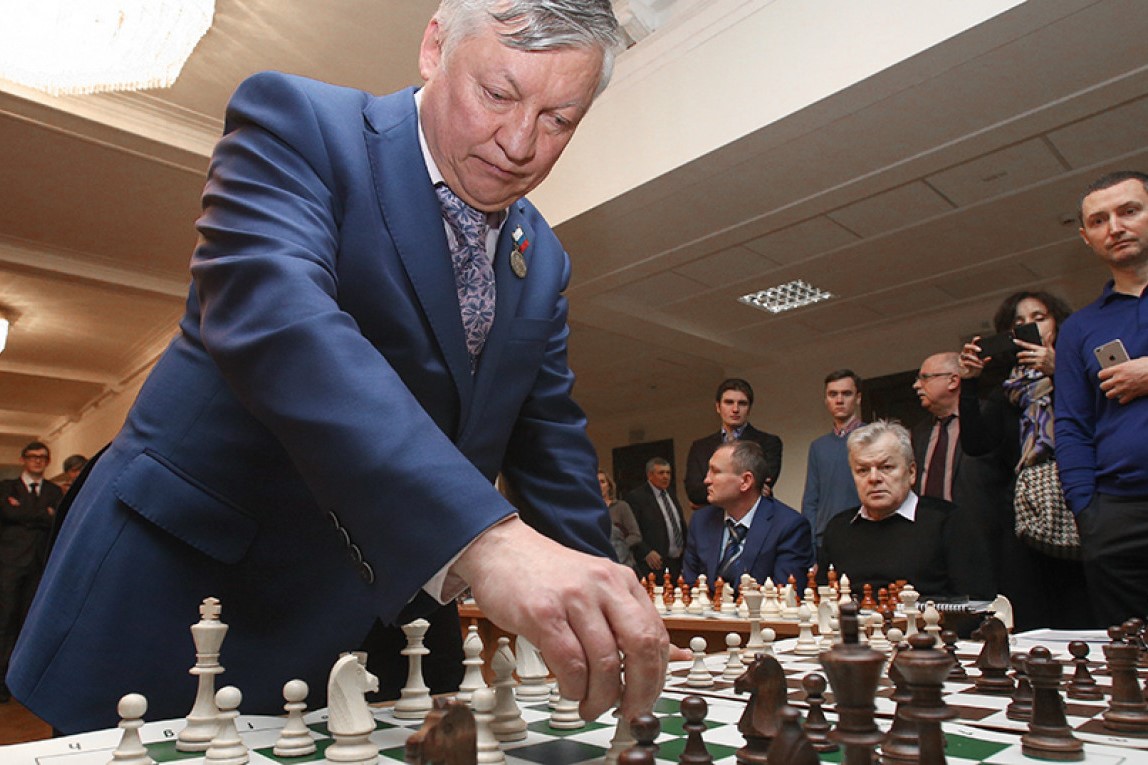


















 DL: Please, tell me more about your first chess trips. Your first travel abroad was to Trinec, but your first trip somewhere outside the Soviet orbit was to Sweden, right?
DL: Please, tell me more about your first chess trips. Your first travel abroad was to Trinec, but your first trip somewhere outside the Soviet orbit was to Sweden, right?





